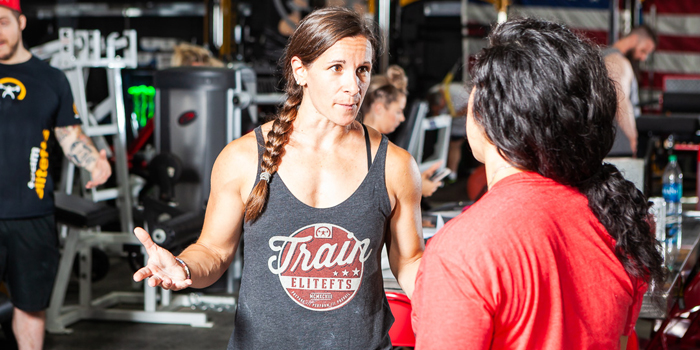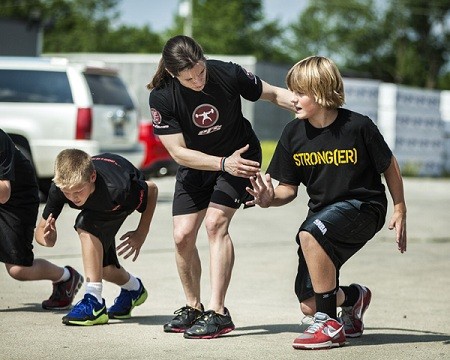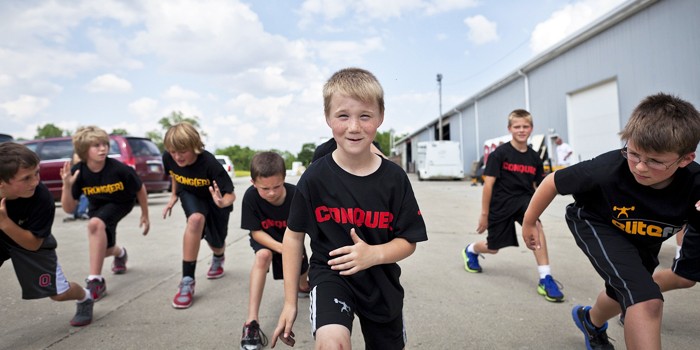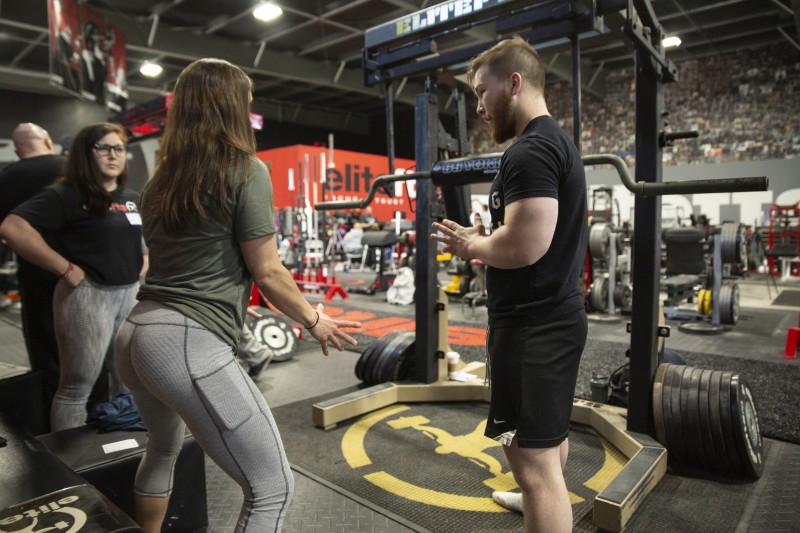
I was hired as an assistant Strength Coach at the University at Buffalo at the ripe age of 21. I had just graduated with an Exercise Science degree, spent my senior year working with a few of the Ball State athletic teams, and had just finished an internship with the prestigious Athletes' Performance (now EXOS) under Mark Verstegen in Arizona. On paper, my resume looked pretty good.
When I walked on the UB campus in 2002, I had no idea what was about to hit me in the face. Aside from the fact that I tried hard to avoid the "how old are you" question until I was finally older than the oldest guys on the football team, I had no idea that training these kids was going to involve more than sets and reps.
My previous experiences taught me SO much, and I'm grateful for those mentors. However, being so young, I didn't truly grasp the big picture until several years later.
As strength coaches, we talk about being able to read your athletes' fatigue levels and watching non-verbal cues, I still believe that many young coaches and trainers put more stock in the perfect program than anything else .
20 years later and I'm still learning. That's the only way to continue to grow and develop. Over the years, learning from my mistakes and watching other coaches as well, I have realized there are a few key characteristics that get overlooked on what makes a good coach. I'm sure there are others, but here's what I keep coming back to.
Communicate by asking questions
Whether you're coaching general population, high level athletes, college or youth, this is huge. While non-verbal cues are great (athlete looks tired shuffling feet as he walks in), you should still be asking questions and getting feedback.
An average coach would just ask yes or no questions. I might look something like this:
Hey! How ya feeling?
Fine.
Are you sore today?
No.
You ready to train?!?!?
Sure.
Not getting a whole lot of feedback as to what your client is feeling. Here's a better example that I use with a high school hockey player who is very quiet. Our daily routine of questions goes something like this:
On a scale of 1-10, how do you feel today?
Like a 7
So you feel pretty good. What areas of tightness or soreness are you feeling?
Hmmm... I guess my hamstrings feel kinda tight.
Ok, let's roll those out while we keep talking. How many games did you play this weekend? Did you win or lose?
We had 1 Friday and 1 Saturday. We won those, but lost the finals on Sunday.
Ugh. That stinks. On a scale of 1-10 how happy are you with how you played?
Probably 9. I know I was going hard. I played more than usual.
What did you have for breakfast and lunch?
Cereal for breakfast. Lunch, nothing. You know I hate school lunches. (Yes, I still ask him every day what he ate for lunch even though I know the answer and he refuses to pack a lunch.)
But you grabbed a snack before you came here to training, right? What did you have?
A granola bar, apple and a Gatorade.
Not only are the questions so much more engaging, but I'm getting way more feedback AND building a rapport with him. His snack before training used to be non-existent as well. So he would come to me at 4pm having not eaten since 7am. After asking him the question every time, he started getting a snack.
Listen - and read between the lines
As coaches we often get stuck in the habit of telling - telling people what to do, how to do it, fix this, change that - that we often forget that we have to listen.
Listening to the answers to the above questions is sure helpful. But we need to really listen to what the client might be saying between the lines.
How did you sleep last night?
Terrible. I couldn't get comfortable and I woke up twice with sharp pains in my back.
Ugh, did you try those stretches I showed you?
I did. Helped some but I could tell throughout the day that it kept wanting to tighten back up.
How does it feel right now on a scale of 1-10?
It's like a 6.
First of all, notice how I asked "did you try those stretches" rather than telling "you need to stretch". Get the information first and go from there. Hearing the whole conversation, it sounds like the client has tried to get it to feel better throughout the day, but something just isn't right. Reading between the lines tells me that maybe it isn't a great day for heavy deadlifts.
You wouldn't have been able to figure that out had you not asked questions. Remember, clients sometimes don't link things together like we do. To her, the bad night of sleep wouldn't have triggered her to speak up about her back being sore. But you ask the right questions and you save everyone time, headache and pain.
Guide, Don't Demand
This is so tough because as coaches, we have all the answers, right? I mean, that's why the client hired you! The hard part in this industry is that we may know sets, reps, progressions and programs, the only person who knows the client the best.... IS THE CLIENT!
Asking questions and really listening between the lines is a good start, we really need to take into account that there are so many things about the client we don't know and even more things that are out of our control.
For example, I was talking to one of my new clients the other day and she mentioned how many calories she was eating. Before asking questions, I made a "yucky" face and said, "wow, that's really low!"
Yeah, I know. But my PCOS really seems to hinder how I lose fat.
I had totally forgotten about her PCOS! So I asked some more questions, like how did you lose the weight in the first place, what other exercise are you doing, and how consistent are you with the diet. Come to find out, she's running an 8k in March and her job can be stressful at times.
So instead of demanding her to eat more, stop running and quit her job, I offered a few suggestions based on my experiences. When we demand changes, most are resistant. It's like a child, really! Try guiding them by offering 2 or 3 ideas and see which one resonates more with them.
"Our metabolisms do slow as we lose weight and eat less. I understand that 1400 calories got you to where you are now, but you're stuck. Here's a few ideas I have based on the things you told me:
Upping the protein goal for the day.
Doing some de-stressing activities like leisurely walking, reading, taking a bath or light yoga.
Incorporating some carbs pre or post workout.
Which ones seems like a more doable option for you right now?"
You've educated them on why continually eating less can be harmful, and you're doing it in a way that shows you're on the same team as them... not above them looking down. You're empowering them to make a decision. They are hearing you out more because you're listening to them!
In a nutshell, much of the above concepts require us to stop talking. It can be difficult because as coaches we often have strong feelings about certain topics, not to mention how passionate we are about helping people do things the right way!
Ask questions, listen between the lines and guide them a little more. Together, those things show that you're working WITH them... and that's really what most clients respond to.











